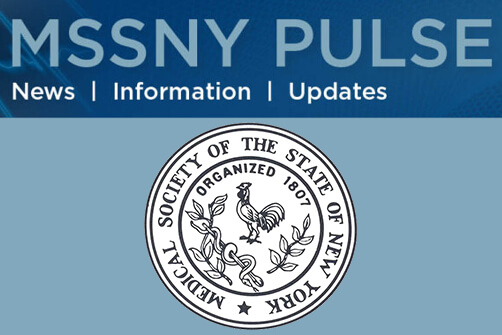
Updated NYS Hepatitis C Screening Recommendations for Pregnant People
An estimated 2.2 million persons nationally and 116,000 New Yorkers are infected with hepatitis C. Forty percent of persons living with hepatitis C do not know it. Nationally, rates of hepatitis C have risen among persons of reproductive age. Hepatitis C among the United State obstetric population rose nearly 10-fold over the last decade. Pregnant persons with hepatitis C have a 6% chance of transmitting the virus to their baby. That chance doubles in babies born to individuals who are co-infected with human immunodeficiency virus and hepatitis C or who have high hepatitis C viral loads. Infection with hepatitis C can result in adverse fetal outcomes.
The purpose of this letter is to inform obstetrics and gynecology providers and other practitioners caring for pregnant people of the new hepatitis C screening requirement for all pregnant people in New York State. The new requirement includes:
- Every physician or practitioner caring for a pregnant person shall order a hepatitis C virus screening test.
- If the screening test is reactive, a hepatitis C ribonucleic acid test (RNA) must be performed on the same specimen, or a second specimen collected at the same time as the initial hepatitis C screening test specimen, to confirm diagnosis of current infection.
- Pregnant persons with a detectable hepatitis C ribonucleic acid test are offered follow-up hepatitis C health care and treatment or are referred to a health care provider who can provide follow-up hepatitis C health care and treatment.
- The physician or practitioner caring for the pregnant person shall record the hepatitis C test results prominently in the pregnant person’s medical record at or before the time of hospital admission for delivery.
This requirement will go into effect on May 3, 2024. The requirement aligns with the Centers for Disease Control and Prevention and U.S. Preventive Services Task Force hepatitis C screening recommendations for adults and pregnant persons. This recommendation is also endorsed by the American Academy of Obstetrics and Gynecology.
Share
Registration Now Open Medical Matters CME Webinar Public Health! What is it Good for? Wednesday June 12, 2024 @ 7:30am Join a group of public health experts on June 12th at 7:30am for the next Medical Matters webinar, Public Health! What is it Good for? This webinar will be a panel discussion examining the evolving […]
Revised Wrongful Death Liability Expansion Legislation Does Not Alter Fundamental Concerns About Harm to Healthcare System New York’s continued designation as one of the worst states in the country in which to be a physician Best & Worst States for Doctors in 2024 (wallethub.com) is a major contributing factor to patient access to care shortages […]
MSSNY Joins with Patient Advocates to Reduce Prior Authorizations Burdens MSSNY organized meetings with several key legislators this past week to urge passage of prior authorization reform measures this year, including A.7268 (Weprin)/S.3400 (Breslin) and A859-A(McDonald)/S.2680-A (Breslin). Joining MSSNY in these meetings were representatives from the NY State Psychiatric Association, the American College of Obstetricians […]
Final Weeks of Session Brings Numerous Concerning Scope Expansion Bills The recently enacted State Budget importantly rejected numerous proposals that would have threatened patient safety by removing the important oversight and/or collaboration that physicians provide in the delivery of patient care. However, as we enter the final three weeks of the scheduled 2024 Legislative Session, […]



